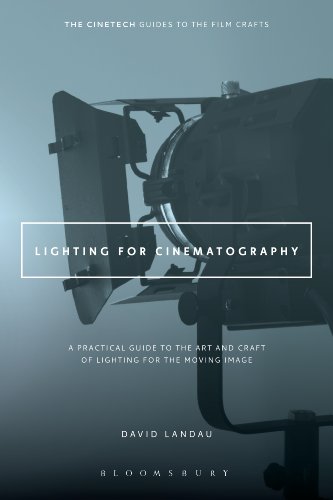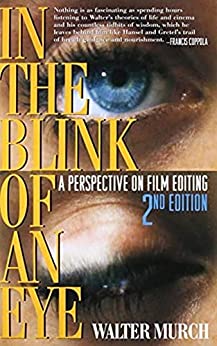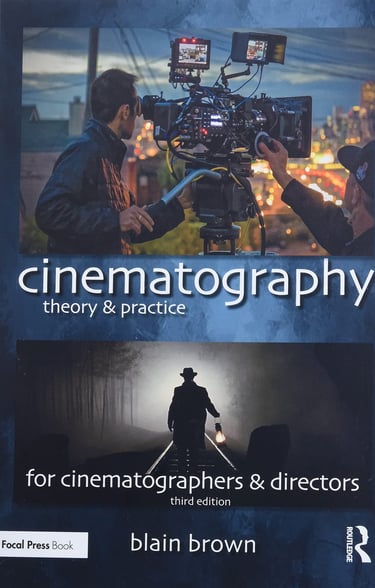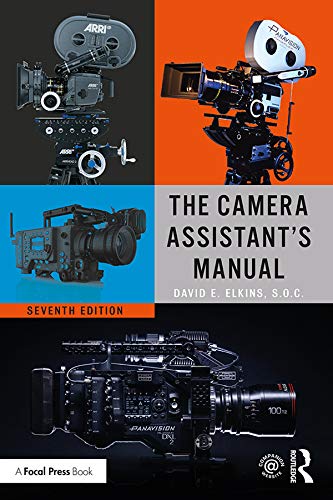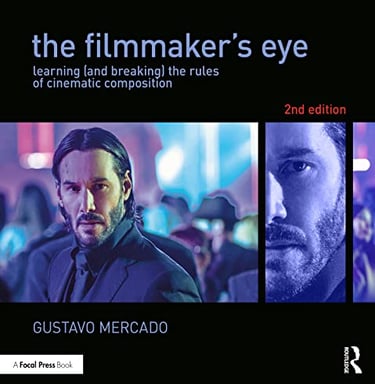
Library: Must-Read Books for Cinematographers
This article is a comprehensive guide to the best books for those looking to sharpen their skills in the art and craft of cinematography. It is aimed at both aspiring and established cinematographers and covers a wide range of topics, including the technical and aesthetic aspects of image-making, the history and theory of cinematography, and the practical skills and techniques needed to excel in the field. Just don't forget about your pro sound friends.
LIBRARYADVICE
As veteran sound mixers, we have an extensive network of crew in other departments, so we decided to tap into that to find out what books everyone has found useful in their craft. We wanted to be able to recommend a wide range of books, from introductory texts for newcomers to advanced texts for seasoned professionals. Each book comes with a brief summary and explanation of the key takeaways and benefits of reading it, allowing you to gain a clear understanding of the content and how it can help you improve your skills as a cinematographer. If you have other must-read recommendations, please leave it in the comments section so we can check it out! Check back later as we explore book recommendations for other pros like sound, story, accounting and other fun departments.
Our first book recommendation for cinematographers is Lighting for Cinematography: A Practical Guide to the Art and Craft of Lighting for the Moving Image by David Landau This book provides an in-depth reference to the art and craft of lighting for cinematography. It discusses the technical and aesthetic aspects of lighting for film and video, and it includes both hands-on exercises and practical examples. It brings a comprehensive overview of the artistic and technical components of lighting, as well as how to employ light to improve the visual storytelling of a film.
"Lighting is the primary tool for creating visual effects and emotional impact in the moving image. It can be used to create realism, mood, and atmosphere, or to draw attention to certain elements of the frame. It can be used to create depth, shape, and texture, or to control the direction of the audience's gaze."
Next up is In the Blink of an Eye by Walter Murch is written by one of the most renowned editors in the business and is considered a classic in the field. Murch offers a deep dive into the editing process and a lot of wisdom about the creative mind at work. As it's written by one of the most respected editors in the business, this book takes a detailed look into the craft of film editing. With insightful descriptions of the creative procedure and helpful advice and approaches to aid editors in making more informed choices, this book give you a full grasp of what an editor is really looking for out of a cinematographer.
"Editing is the process of selecting the best parts of each shot and putting them together to create a new whole. It is the making of a film's rhythm and the shaping of its meaning."
Learning (and Breaking) the Rules of Cinematic Composition with a Filmmaker's Eye, by Gustavo Mercado is uniquely written in the visual language of cinema and will teach you how to make striking and memorable pictures. It provides numerous practical examples and tasks to help readers hone their cinematographic abilities. This book delves deeply into the visual language of cinema and provides guidance on how to use it to make striking and memorable pictures. A variety of tasks and examples are provided to assist readers hone their cinematography abilities.
"Cinematography is the art of capturing light and creating visual style. It is the visual language of cinema and the way in which we communicate with the audience."
Cinematography: Theory and Practice by Blain Brown is an in-depth manual for aspiring cinematographers, covering everything from the mechanics of cameras and lenses to the psychology of color and lighting to the different ways to tell a story with images. The technical features of the camera and lenses, the use of color and light, and the numerous methods to visual storytelling are all covered in this comprehensive guide to the cinematographer's craft. Covers the business end of things as well, including details on contracts, insurance, and renting necessary tools.
"The role of the cinematographer is to visually tell the story and create the mood and feeling the director wants to evoke. It is a combination of art and craft, and requires a deep understanding of the technical aspects of camera and lenses, as well as the use of color and light."
In David E. Elkins, SOC's The Camera Assistant: A Complete Professional Handbook The reader will find this to be an all-inclusive manual for camera operators and aspiring filmmakers. It goes over everything from how to turn the camera on and focus to how to compose a shot and use light effectively. Contracts, insurance, and rental equipment are just few of the many business-related topics covered. Everything from the fundamentals of camera operation to more advanced techniques for focusing, framing, and lighting are covered in this book aimed towards camera assistants and aspiring cinematographers. Business-related topics such as contracts, insurance, and equipment rental are also covered in depth, making this an indispensable guide for anybody considering a career in the motion picture or television industry.
"Being a camera assistant requires a combination of technical skills and practical knowledge, from understanding the workings of the camera to knowing how to set up and maintain equipment. It also requires a deep understanding of the various roles and responsibilities of the camera department, and how to work effectively with other members of the production team."
Hopefully you find these books useful. If you do, hit us up in the comments to let us know what you got out of any of them. And of course if you have any additional recommendations, we'd love to hear from you!

